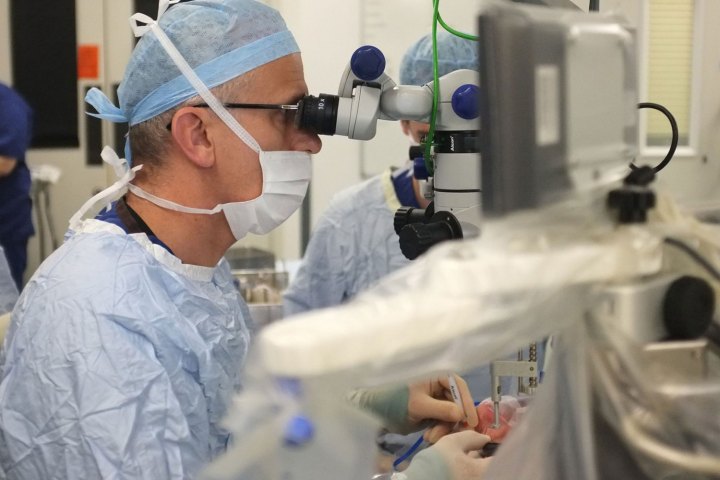
The answer appears to lie within robotics, as British surgeons this week “successfully performed the world’s first robotic operation inside the eye, potentially revolutionizing the way such conditions are treated,” the Guardian reported. The surgery, which took place in Oxford’s John Radcliffe Hospital by Professor Robert MacLaren, was performed on a patient who had a membrane growing on the surface of his retina, “which had contracted and pulled it into an uneven shape. The membrane is about a 100th of a millimeter thick and needed to be dissected off the retina without damaging it.”
While MacLaren told the Guardian that current laser scanner and microscope technology allows doctors to monitor retinal diseases, “the things we see are beyond the physiological limit of what the human hand can operate on.”
On the surgery’s success, MacLaren said “there is no doubt in my mind that we have just witnessed a vision of eye surgery in the future.”
With robotics, according to MacLaren, there’s a whole new chapter of eye operations that previous technology could not perform.
If not for the new procedure, the Guardian said the surgery would have been accomplished by slowing the patient’s pulse and timing movements between heart beats, but the robotics enables “new, high-precision procedures beyond the abilities of the human hand.”
But using a joystick and touchscreen to control the robot gave the doctors the ability to successfully complete the surgery with extremely small movements. The procedure was the “first time a device has been available that achieves the three-dimensional precision required to operate inside the human eye,” according to the Guardian.
Looking to the future of the technology, MacLaren said the robotics points to the potential of “novel surgical treatments for blindness, such as gene therapy and stem cells, which need to be inserted under the retina with a high degree of precision.”
Editors' Recommendations
- World’s most advanced robotic hand is approaching human-level dexterity
- Robot helps a surgeon carry out world’s first long-distance heart operations
- The startup behind the world’s first laundry robot has folded


